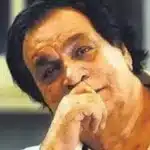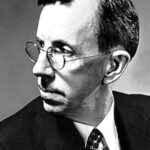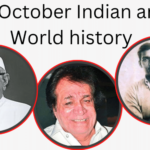Abul Kalam Azad was an Indian scholar, a leader of the Indian National Congress during the Indian Independence movement, and an independent activist, also known as Maulana Abul Kalam Azad. He became the first minister of education in the Indian Government, after Independence. The Prime Minister, Shri Narendra Modi has paid rich tributes to Maulana Abul Kalam Azad on his Jayanti. The Prime Minister called him a path-breaking thinker and intellectual whose role in the freedom struggle is inspiring.
In a tweet, the Prime Minister said:
“Tributes to Maulana Abul Kalam Azad on his Jayanti. A pathbreaking thinker and intellectual, his role in the freedom struggle is inspiring. He was passionate about the education sector and worked to further brotherhood in society.”
Tributes to Maulana Abul Kalam Azad on his Jayanti. A pathbreaking thinker and intellectual, his role in the freedom struggle is inspiring. He was passionate about the education sector and worked to further brotherhood in society.
— Narendra Modi (@narendramodi) November 11, 2021
EARLY LIFE
He was born on 11 November 1888 in Mecca. His father was a Bengali Muslim scholar, He receive traditional Islamic education from his father. In 1890, his family settled in India. At the age of 11, in 1899, he started publishing a poetical journal Nairang-e-Aalam at Kolkata. In 1903, he then joined Al Nadwa, the Islamic theological journal of the Nadwatu l-Ulama on Shibli Nomani’s invitation. In 1912, he published a weekly Urdu-language newspaper in Kolkata, Al-Hilal. The paper quickly became highly influential in the Muslim community for its anti-British stance, notably for its criticism of Indian Muslims who were loyal to the British. Al-Hilal was soon banned by the British Government.
INDEPENDENCE MOVEMENT
In 1905, he opposed the partition of Bengal and became increasingly active in revolutionary activities. In 1920, he joined the Indian National Congress and galvanized India’s Muslim community through an appeal to pan-Islamic ideals. In this he also become active in Khilafat Movement, he saw an opportunity to energize Indian Muslims and achieve major political and social reform through the struggle.
After the Khilafat Movement, He get closer to M. Gandhi and was involved in Gandhi’s various civil-disobedience campaigns, including the Salt March of 1930. In 1940, he became second-time President of Indian National Congress, after 1926, He was largely inactive during his second time, at that time all of his leaders were in prison. After Second World War, he was one of the Indian leaders who negotiated with Britishers. He later blamed both Congress Party leaders and Mohammed Ali Jinnah, the founder of Pakistan, for the ultimate division of the subcontinent.
After the Independence, he served as Minister of education in the Indian government of Jawaharlal Nehru from 1947 until his death
DEATH
He died on 22 February 1958, Delhi, India.
AWARDS
After his death, in 1992, He was awarded with Bharat Ratna, India’s highest civilian award.
Observer Voice is the one stop site for National, International news, Editor’s Choice, Art/culture contents, Quotes and much more. We also cover historical contents. Historical contents includes World History, Indian History, and what happened today. The website also covers Entertainment across the India and World.










